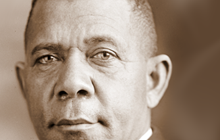The conservative movement began largely as a serious intellectual movement in the 1950s. Its principles were: limited government, free enterprise, strong national defense, and traditional values. Early in the movement the focus was on developing its ideas and on the important job of attracting others to those ideas. This early intellectual movement managed to attract and recruit sufficient numbers of inexperienced but earnest grassroots conservative activists to nominate Barry Goldwater for President in 1964, but Lyndon Johnson’s landslide victory that year produced confident and loud predictions that conservatism in politics was all but dead.
This first session overviews the intellectual underpinnings of the Conservative movement and sets the stage for considering how those “ideas” can become “actions” that are successful at the polls and in the trenches of applied political policy.







